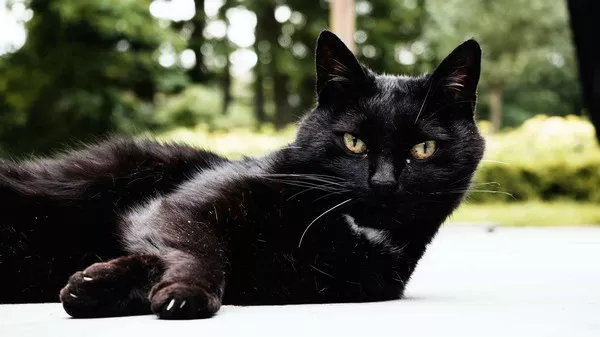Introduction to F1 Bengal Cats
Bengal cats are renowned for their striking appearance and unique temperament. Among the various generations of Bengal cats, the F1 generation holds a special place. F1 Bengal cats, also known as first-generation Bengals, are the offspring of a domestic cat and an Asian leopard cat (Prionailurus bengalensis). This hybridization results in cats with distinct physical features, such as rosetted or marbled coats and a wildcat-like appearance. F1 Bengals inherit their wild ancestry’s athleticism, intelligence, and playful nature, making them captivating companions for cat enthusiasts.
Average Lifespan
The lifespan of an F1 Bengal cat typically ranges from 12 to 16 years. However, individual longevity can vary based on several factors, including genetics, environment, and healthcare.
Factors Influencing Lifespan
Genetics: As with any living organism, genetics play a significant role in determining lifespan. F1 Bengals inherit genetic traits from both their domestic and wildcat ancestors. While hybrid vigor may contribute to their overall health and vitality, certain genetic predispositions to diseases or health conditions can affect their lifespan.
Environment: The environment in which an F1 Bengal cat lives greatly influences its well-being and longevity. Providing a safe and stimulating environment that meets their physical and mental needs is essential. Exposure to toxins, accidents, or stressors can negatively impact their health and lifespan.
Healthcare: Proper healthcare is crucial for ensuring the longevity of F1 Bengal cats. Regular veterinary check-ups, vaccinations, parasite control, and preventive measures against common feline diseases are essential. Additionally, spaying or neutering F1 Bengals can reduce the risk of reproductive-related health issues and certain cancers.
Healthcare Tips
To optimize the lifespan of an F1 Bengal cat, consider the following healthcare tips:
Diet: Provide a balanced diet rich in high-quality protein and essential nutrients. Avoid overfeeding and monitor their weight to prevent obesity-related health problems.
Exercise: F1 Bengals are highly active and agile cats that require regular exercise to maintain their physical and mental well-being. Interactive play sessions and access to cat trees or climbing structures can help fulfill their natural instincts.
Regular Veterinary Check-ups: Schedule annual veterinary exams to monitor their overall health, detect any underlying issues early, and discuss preventive care strategies.
Preventive Care: Stay up-to-date with vaccinations, flea, and tick prevention, and dental care. Implementing preventive measures can help reduce the risk of infectious diseases and dental problems.
Common Health Issues
While F1 Bengals are generally healthy cats, they may be predisposed to certain health issues, including:
Hypertrophic Cardiomyopathy (HCM): A common heart condition in cats, including Bengals, characterized by thickening of the heart muscle, which can lead to heart failure.
Progressive Retinal Atrophy (PRA): An inherited eye disorder that can cause vision loss over time.
Feline Infectious Peritonitis (FIP): A viral disease caused by a coronavirus that can lead to severe inflammation and organ failure.
Patellar Luxation: A condition where the kneecap dislocates, leading to lameness and discomfort.
Regular veterinary care and early detection of these health issues are crucial for managing and treating them effectively.
Comparison with Other Breeds
Compared to some other domestic cat breeds, F1 Bengals may have a slightly shorter lifespan. While the average lifespan of 12 to 16 years is respectable, some purebred domestic cats, such as the Siamese or Maine Coon, may live slightly longer, with some individuals reaching into their late teens or even early twenties. However, it’s essential to note that individual variation, genetics, and environmental factors play significant roles in determining lifespan across all cat breeds.
Care for Aging Cats
As F1 Bengal cats age, their care needs may evolve. To ensure their comfort and well-being during their senior years, consider the following:
Dietary Adjustments: Senior cats may benefit from a diet formulated specifically for their age and health needs. These diets typically contain lower calories, reduced fat, and added joint support supplements.
Mobility Support: Provide easy access to food, water, and litter boxes to accommodate any mobility issues that may arise with age. Consider adding ramps or steps to help them reach elevated surfaces more comfortably.
Regular Veterinary Monitoring: Increase the frequency of veterinary check-ups to monitor for age-related health issues, such as arthritis, kidney disease, or dental problems.
End-of-Life Care
Recognizing when a cat is nearing the end of its life can be challenging but essential for providing compassionate end-of-life care. Signs that a cat may be approaching the end of its life include significant decline in mobility, appetite, and overall quality of life. When euthanasia becomes a consideration, it’s essential to consult with a veterinarian to ensure a peaceful and pain-free transition for the cat.
Legal and Ethical Considerations
Owning an F1 Bengal cat may have legal and ethical implications, particularly concerning ownership regulations and breeding practices. In some regions, owning exotic hybrids like F1 Bengals may be subject to specific permits or restrictions due to concerns about wildlife conservation and public safety. Additionally, ethical considerations surrounding the breeding of F1 Bengals include ensuring responsible breeding practices, prioritizing the welfare of the cats, and avoiding the exploitation of wild populations.
Conclusion
Understanding the lifespan and care needs of F1 Bengal cats is essential for providing them with a fulfilling and healthy life. While they may have a slightly shorter lifespan compared to some other domestic cat breeds, proper healthcare, environmental enrichment, and attentive care can help extend their years and enhance their well-being. By implementing preventive care measures, staying vigilant for potential health issues, and offering compassionate end-of-life care when necessary, F1 Bengal cat owners can ensure their beloved companions live happy and comfortable lives from kittenhood through their golden years.
Related Topics:
























